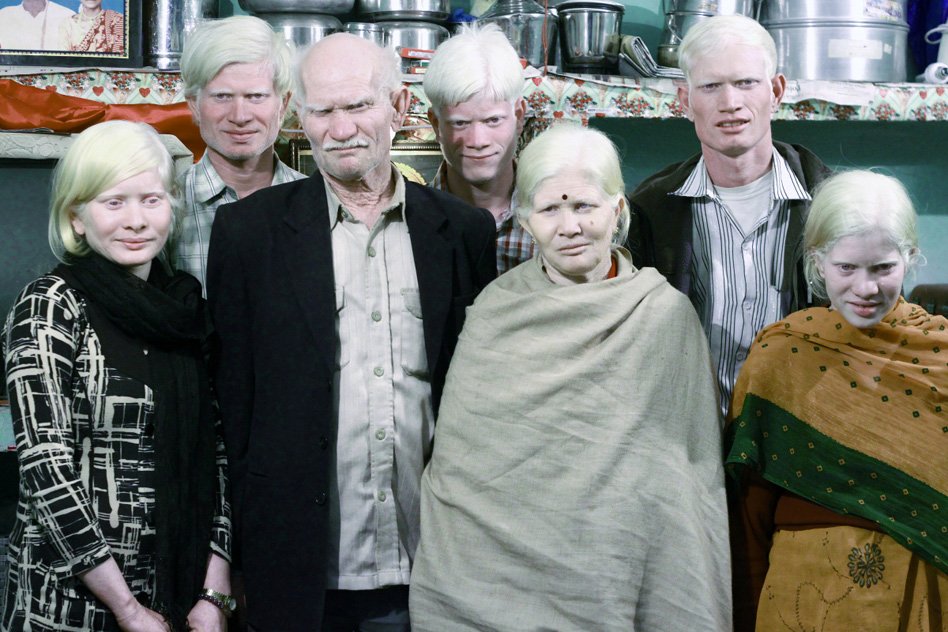Image Source: tinypic
About 1 in every 17,000 children world over is born with albinism, a congenital genetic hypo-pigmentary disorder commonly affecting the skin and the eyes.
What is albinism?
Albinism is a non-communicable genetic condition caused due to absence or insufficient amount of pigment in the skin and eyes.
What causes albinism?
Our body is made up of millions of cells, each of which contain genes. Genes are segments of DNA that determine the physical and chemical functioning of cells, in other words, genes are responsible for the physical and functional status of the body. Sometimes, genes undergo mutations, or changes, which make them abnormal. This causes a deviation from the normal functioning of the body. Some genetic disorders can be passed from parents to children. Albinism is one such example.
The skin and the coloured portion of the eyeball (iris) contain a pigment known as melanin. Melanin is responsible for the colouring of the skin and iris. Darker the colour, higher is the melanin content. Melanin is actually a protective pigment, it protects the skin and the eyes from the harmful effects of the ultraviolet radiation of the sun.
In albinism, due to a genetic defect, there is reduced, or no production of melanin.
Symptoms of Albinism:
The symptoms and appearance are due to hypo-pigmentation (reduced pigment content) of the skin and eye.
There are 2 main types:
1. Oculocutaneous albinism: Here, there is hypo-pigmentation of both, the eyes (ocular), and the skin and hair (cutaneous). Depending on the amount of pigment, and the race affected, there are four sub-types.
-Skin colour varies from very pale and white, to pinkish.
-These individuals generally have stark white, silver, or light blond hair.
In groups belonging to darker races, like Africans
-the skin may be reddish brown, or yellow, while the hair colour is pale red or pale brown.
-the eyes are very lightly coloured, ranging from pale blue to pale brown.
2. Ocular albinism: In this type, only the eyes are affected. The hair and skin remain normal. Along with hypopigmentation, the eyes show symptoms like
-strabismus or squint
-nystagmus (rapid to and fro movement of the eye)
-reduced vision, or even blindness.
3. Sometimes, albinism may be part of syndromes where several other genes are mutated, and in addition, the patient has lung, intestine or blood disorders.
Treatment:
Due to low melanin, these individuals are exposed to harmful UV rays of the sun, which can cause skin cancers and blindness.
Albinism is genetic, and thus, has no cure, only protective treatment.
For the skin, to prevent sunburns and cancer, patients are advised to:
-avoid prolonged sun exposure
-use protective clothing like full-sleeved shirts, long trousers, and hats, when in the sun.
-use a good sunscreen.
Sunglasses should be worn to protect the eyes.
Patients with squint are offered corrective squint surgery.
Spectacles or lenses can be used to enhance vision.
Individuals suffering from albinism often have to face social ridicule and isolation. As compassionate educated humans, it is our duty to be supportive to them.










